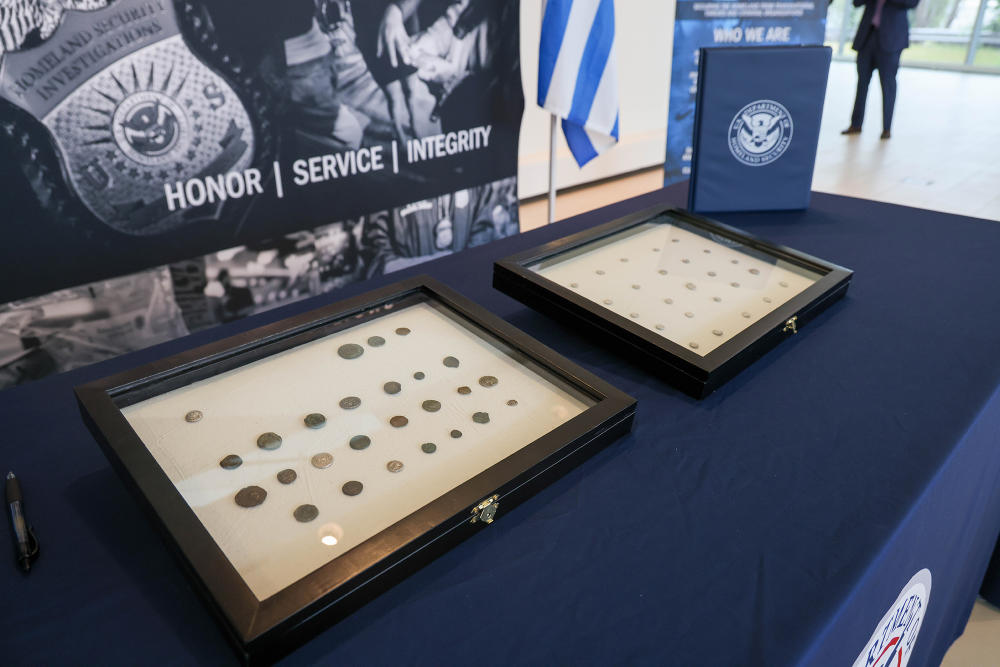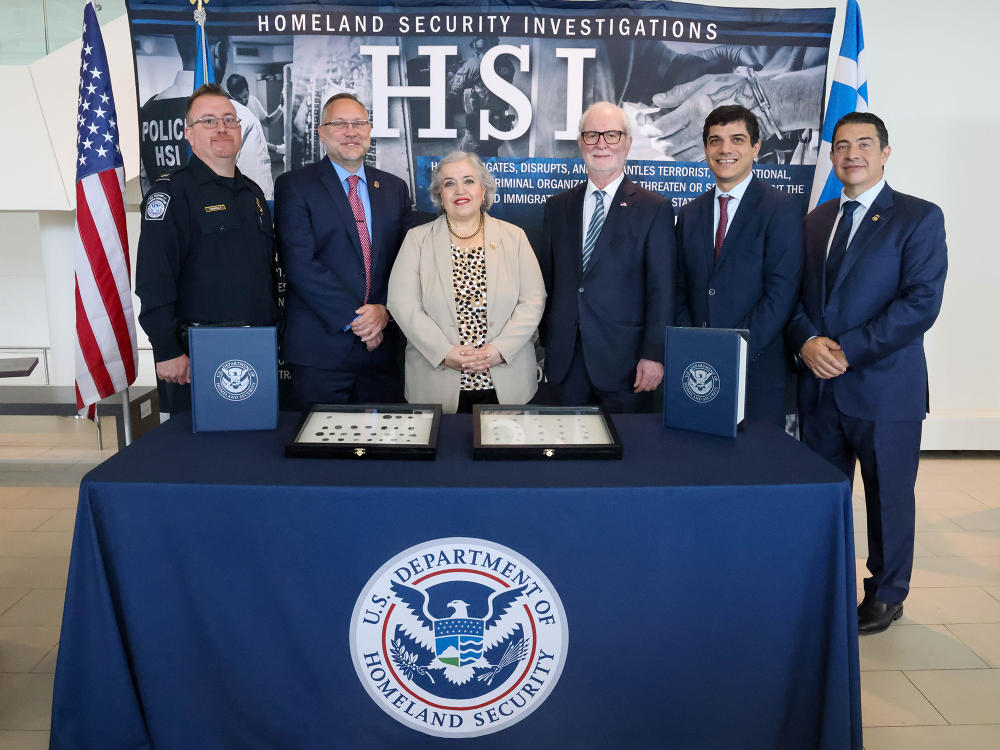Customs Repatriation to Greece Raises Questions for Collectors
By Peter K. Tompa
U.S. Immigration and Customs Enforcement (Customs) recently repatriated fifty-one ancient coins to the Greek Government at a highly publicized ceremony conducted at the Hellenic Museum in Chicago.
Content
While Customs officials claim the coins were “stolen” from Greece in a video of the event, other statements pointing to a “lack of documentation” instead suggest that the coins were seized from American citizens based on import restrictions that implement a Memorandum of Understanding (MOU) with Greece. Although the Ancient Coin Collectors Guild, an advocacy group for coin collectors, has sought more information about this and other seizures through the Freedom of Information Act, Customs has stonewalled these efforts, adding to collectors’ concerns about these seizures.
Greece, Bulgaria, Turkey?
When the MOU with Greece was initially being discussed, Greece’s ambassador stated, “I would like to emphasize that our request concerns the antiquities that have been found exclusively on Greek territory and has no retroactive effect.” (Transcript of Cultural Property Advisory Committee Meeting (October 12, 2010) at 17:15-18.) Yet, photos of the coins that were repatriated suggest that such self-restraint has been forgotten. While all the coins that were repatriated were made by ancient Greeks, experts have determined that a number of them do not appear on the “designated list” of coins subject to import restrictions under the current MOU with Greece, but instead originate from what is today Bulgaria and Turkey. Thus, it looks like Customs merely confiscated coins being shipped from Europe that looked “Greek” and demanded often difficult to obtain documentation to prove such coins were exported from Greece before the MOU’s 2011 effective date. When the importer was unable to provide that information, the coins were seized for repatriation to Greek authorities.

These are some of the coins which were recently repatriated to Greece. Photo: U.S. Immigration and Customs Enforcement.
How U.S. Customs Enforces Import Restrictions
The real issue is how Customs enforces import restrictions under the Cultural Property Implementation Act (CPIA), the statute that also authorizes the State Department to enter into cultural property MOUs. The CPIA only allows import restrictions on “designated” archaeological objects “first discovered within” and “subject to export control by” Greece that are illicitly exported from Greece after the effective date of the governing regulations. (19 U.S.C. §§ 2601, 2604, 2606.) However, Customs instead applies import restrictions far more broadly as embargos on any “designated” cultural good imported after the effective date of the regulations. So, what Customs claims before cameras are “stolen” coins may very well instead be ones that have been imported from legitimate markets abroad, particularly from those within the European Union (EU). Never mind that Greece is bound under EU rules to recognize such legal exports from sister EU member states.
U.S. Congress Did Not Want to Harm the Legitimate Coin Trade
There is no reason to believe that Congress thought that import restrictions would harm the legitimate coin trade, and the people-to-people contacts, appreciation of our shared culture and preservation of common artifacts collecting fosters. No import restrictions were imposed on ancient coins for some twenty-five (25) years after the CPIA came into law. This is not surprising. Ancient coins are items of commerce making it difficult for modern nation states to claim them as their “cultural property.” They are widely collected, including in several countries with MOUs with the United States, like Greece. Indeed, at the time, Mark Feldman, the State Department Deputy Legal Adviser, represented to Congress that “it would be hard…to imagine a case” where coins would be restricted under what would become the CPIA (Cultural Property Treaty Legislation: Hearing on H.R. 3403 Before the H. Subcomm. on Trade of the Comm. on Ways and Means, 96th Cong. 8 (1979).).
The First Import Restrictions On Ancient Coins…
The first import restrictions were only placed on certain ancient coins from Cyprus in 2007, under questionable circumstances. (See Peter Tompa, Why Have MOUs Become so Restrictive Against Coin Collectors? Coins Weekly (April 15, 2021) (last visited June 30, 2023).) Since that time, additional import restrictions have been imposed on ancient and early modern coins from Afghanistan, Albania, Algeria, Bulgaria, China, Greece, Iraq, Italy, Jordan, Libya, Morocco, Syria, Turkey and Yemen. Moreover, further restrictions are being considered for Cambodia, North Macedonia, Tunisia, Pakistan and Uzbekistan.
…And How Import Restrictions Have Been Applied
While enforcement has been spotty, as the recent repatriation to Greece shows, increasing numbers of coins have been subject to detention and seizure. Indeed, by Customs’ own count, since 2007, over 20,000 objects, including paintings, sarcophagi, statues, coins and illuminated manuscripts, have been repatriated to over forty countries. (Federal agents, National Hellenic Museum conduct largest repatriation of ancient coins to Greece in recent HSI history, U.S. Immigration and Customs Enforcement Newsroom (June 21, 2023) (last visited June 30, 2023)).
What Can Collectors Do to Avoid Trouble?
So what can collectors do to avoid trouble? Although it is not foolproof, buy only from recognized dealers who stand by their sales, particularly those who are members of trade associations like the International Association of Professional Numismatists. Even when you do so, it is still better to be safe than sorry. Not only does the Ancient Coin Collectors Guild advocate against government overreach against collectors; it also offers information about what coins are subject to import restrictions, and how to import the increasing number of coin types that have been impacted on its website.
The Author
Peter K. Tompa is a semi-retired lawyer who lives in Washington, D.C. He currently serves as outside counsel to the International Association of Professional Numismatists and as executive director to the Ancient Coin Collectors Guild. The opinions he expresses are his own and should not be taken as legal advice.
We presented Peter K. Tompa in our Numismatic Who’s who.
Recently he gave his opinion on the Beale case.
Further Information
About the repatriation:
About Import Restrictions:
















